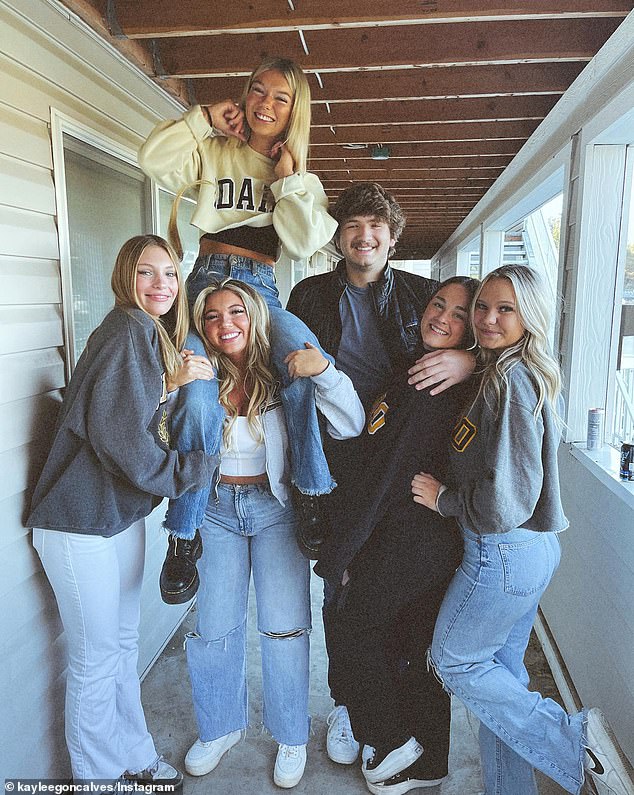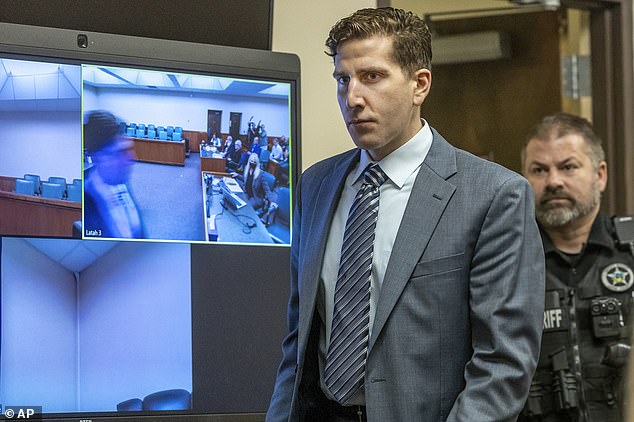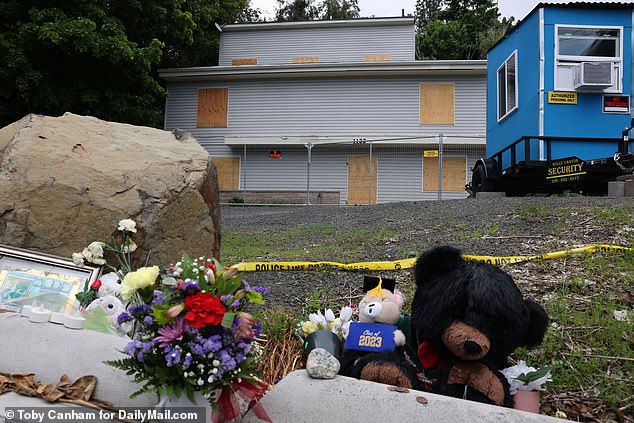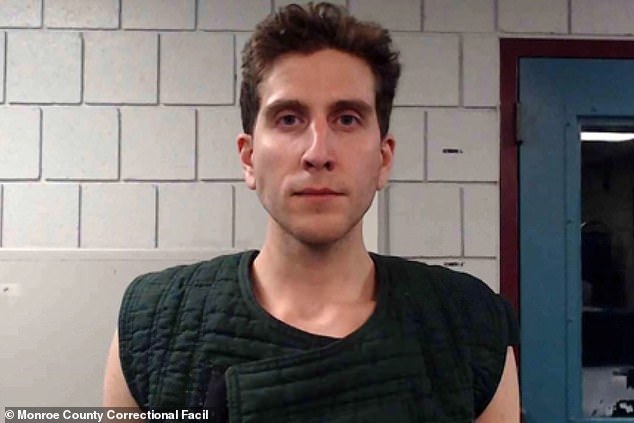Idaho murder suspect Bryan Kohberger’s could be kept off TV after lawyers from both sides call for a ban on courtroom cameras
Attorneys on both sides of the upcoming trial of Idaho murder suspect Bryan Kohberger have asked for TV cameras to be restricted in court.
In late August, Kohberger’s defense team asked Latah County District Judge John Judge to ban cameras from the courtroom, claiming the coverage would violate the suspect’s constitutional rights.
Prosecutor Bill Thompson has now responded by citing his own concerns about the presence of the media during the trial and has asked the judge to at least remove cameras during the testimony of “a number of young and vulnerable witnesses.”
Some of these witnesses, including the two surviving roommates from Idaho, college students who lived with three of the four victims who were brutally murdered during a 4 a.m. home invasion last November.
“In addition to, and at least in part as a result of, the substantial reporting in traditional and social media, certain witnesses have already been subjected to threats and intimidation, including physical burglaries, directed not only against the witnesses and other university students, but also against their extended families and friends,” Thompson noted.
Lawyers on both sides of the murder trial against Bryan Kohberger have asked the judge to limit camera access to the courtroom

(L-R) Housemates Dylan Mortensen, Kaylee Goncalves, Madison Mogen (on Kaylee’s shoulders) Ethan Chapin, Xana Kernodle and Bethany Funke
At Kohberger’s arraignment in May, the judge entered not guilty pleas on behalf of the defendant to four counts of first-degree murder and one count of burglary for the death of Madison Mogen, Ethan ChapinXana Kernodle and Kaylee Goncalves.
After his arrest, Kohberger said he looks forward to being exonerated. Instead, prosecutors claim that investigators found his DNA on a gun found next to Mogen’s body.
At a hearing in late June, the judge said cameras in Moscow, Idaho — where the trial will take place — should show a wide view of the courtroom and not focus solely on Kohberger.
Kohberger’s attorney, Jay Logsdon, cited the judge’s warning during his filing to remove cameras, arguing that subsequent reporting of the allegations against Kohberger biased potential jurors in the region against him.
“The continued failure of observers to comply with the Court’s June 27 directive exacerbates this problem and results in a continued flooding of the potential jury pool with conclusive allegations and sensational nonsense disguised as factual reporting and analysis,” he wrote in a document that was made public at the end of last month.
The court will make the final decision on the role cameras will play in the murder case. A hearing on the matter is scheduled for Wednesday.
Judges have made several rulings on high-profile cases in the past. Alex Murdaugh and OJ Simpson experienced trials that were broadcast live on television to the American public. ‘Cult mother’ Lori Vallow, on the other hand, mainly had her lawsuit thrown out by a judge.

In August, Kohhberger waived his right to a speedy trial, which prosecutors agreed to. The original trial date was October 2

Prior to the gruesome murders, Kohberger was studying for a Ph.D. in criminology from Washington State University. Pictured: The house where four Idaho students were found murdered
Prior to the gruesome murders, Kohberger was studying for a Ph.D. in criminology from Washington State University, just 10 miles from the University of Idaho, where the four victims were students.
If convicted, Kohberger could face the death penalty.
Detectives relied on genetic genealogy to build their case against Kohberger, using genetic genealogy to build a DNA profile from the DNA left on a knife shell at the scene.
The FBI tracked down Kohberger by tracing his distant relatives through genetic genealogy databases – and then secretly collected a sample of his father’s DNA to confirm his identity.
Police say DNA found on a knife sheath left at the scene of the Idaho murder is a “statistical match” to a cheek swab taken from the suspect after his arrest.
During previous hearings, prosecutors have pushed for Kohberger to provide witnesses who could support an alibi. However, his defense said that “there is no specific witness at this time who can say exactly where Kohberger was” the night of the murders.
“He was away and driving during the late night and early morning hours of November 12 to 13, 2022,” attorneys said, adding that he “does not claim to be at a specific location at a specific time.”
Prosecutors have demanded more details about his alleged alibi, saying “driving in the area” does not exonerate him and instead places him at the scene.
Kohberger’s attorneys claim he had a habit of going out alone at night, and he did so the night of the murders.

During an earlier hearing, one of the victims’ relatives was seen wearing a pro-death penalty shirt
Last month, Kohberger waived his right to a speedy trial, postponing his original Oct. 2 trial date.
Even though he wants to find a solution as quickly as possible, tThe prosecutor did not object and agreed to the delay was the best option.
A hearing is currently scheduled for September 22, where a trial date will be discussed further.
During the August hearing, when Kohberger waived his right to a speedy trial, relatives of slain University of Idaho student Kaylee Goncalves allegedly mocked Kohberger wearing a pro-death penalty T-shirt.
In June, prosecutors indicated they would pursue the death penalty against Kohberger.
Goncalves’ family shared an emotional message on a Facebook page hours before the hearing, expressing fears that Kohberger’s trial would be postponed.
“Please pray for our family today,” they wrote. ‘We want to complete this process. Just the thought that it could take years kills me.”
“We are concerned that he will waive his right to a speedy trial,” the message said. “If he does, the trial won’t start on October 2 and there’s a good chance it won’t happen for years.”
Although the hearing was closed to the media and public, the victims’ families were allowed to attend via Zoom.
